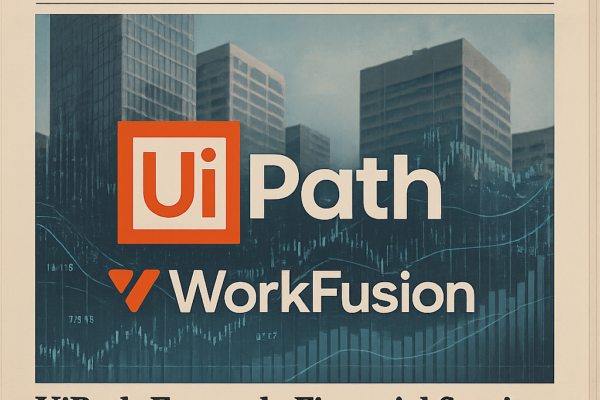The artificial intelligence sector witnessed unprecedented consolidation this week as Cognition AI acquired rival coding startup Windsurf, concluding a 72-hour corporate saga involving three tech giants and redefining valuation metrics in the AI tools space. This $12 billion ecosystem transaction—comprising Google’s $2.4 billion talent acquisition and Cognition’s undisclosed asset purchase—signals intensified competition in enterprise AI development tools, where annual recurring revenue multiples now reach 40x and engineering talent commands billion-dollar premiums. The deal preserves Windsurf’s $82 million revenue stream and 350-enterprise client base while positioning Cognition’s Devin as the dominant autonomous coding platform, though regulatory scrutiny and integration challenges loom over the combined entity’s path to sustainable growth.
💼 M&A / PE diligence in 24 hours? Yes, thanks to AI!
The 72-Hour Corporate Saga
OpenAI’s Failed $3 Billion Gambit
Windsurf’s journey to acquisition began with OpenAI’s $3 billion acquisition offer in April 2025, which would have marked ChatGPT-maker’s largest expansion into developer tools. The exclusivity period expired on July 11th without agreement, primarily due to conflicts over intellectual property sharing with Microsoft and strategic disagreements about product direction[14][15]. This collapse triggered immediate contingency planning at Windsurf, whose leadership had simultaneously been negotiating with Google DeepMind about alternative structures that could preserve operational independence while monetizing their research breakthroughs[1][15].
Google’s Reverse-Acquihire Maneuver
Within hours of OpenAI’s expiration deadline, Google executed a $2.4 billion reverse-acquihire targeting Windsurf’s technical leadership—CEO Varun Mohan, co-founder Douglas Chen, and core research team—while securing non-exclusive licensing rights to their AI coding technology[1][13]. This surgical extraction left 250 employees and the commercial infrastructure intact but decapitated Windsurf’s technical vision, creating immediate operational uncertainty[3][7]. The transaction’s structure drew industry criticism when reports revealed employees hired within the previous year received no financial participation, creating internal discord and talent flight risks[5][8].
Cognition’s Rescue Acquisition
Within 72 hours of Google’s raid, Cognition announced definitive acquisition terms for Windsurf’s remaining assets—intellectual property, product suite, 350-enterprise customer base, and entire operational team[4][11]. While the purchase price remains undisclosed, industry analysts estimate the deal values Windsurf’s commercial operations at $2.5-$3.5 billion based on its $82 million ARR and enterprise revenue doubling quarterly[5][13]. Crucially, Cognition structured employee incentives to include 100% financial participation with waived vesting cliffs, directly contrasting Google’s selective approach[4][8].
Strategic Rationale and Deal Architecture
Product Synergies and Roadmap Integration
Cognition gains immediate market expansion through Windsurf’s agentic integrated development environment (IDE), which complements Devin’s autonomous coding capabilities. Where Devin specializes in end-to-end task execution, Windsurf excels at real-time code explanation and optimization—creating a comprehensive development suite[3][4]. The combined entity now controls two of the three most adopted AI coding tools, with immediate plans to merge their underlying models while maintaining separate product interfaces through 2026[4][11]. This phased integration mitigates customer disruption while allowing cross-pollination of Windsurf’s enterprise sales infrastructure and Devin’s technical architecture[2][13].
Valuation Metrics in Hypergrowth Markets
The transaction reveals unprecedented revenue multiples in AI tooling, where Windsurf’s $82 million ARR supported a $3 billion+ effective valuation when combined with Google’s payment[5][13]. This aligns with sector benchmarks: competitor Cursor commands $500 million ARR at $9.9 billion valuation (19.8x multiple), while Lovable seeks $2 billion valuation on $50 million ARR (40x multiple)[5]. Such multiples reflect investor conviction in exponential adoption curves—Windsurf’s enterprise revenue doubled quarterly, while Replit grew from $10M to $100M ARR in six months following its AI agent launch[5].
Defensive Positioning Against Big Tech
By acquiring Windsurf, Cognition preempts platform consolidation under Google, Microsoft, or Amazon, whose cloud divisions increasingly bundle AI coding tools with infrastructure services[10][15]. The deal creates the largest independent AI development platform at 450+ enterprise customers, with combined technical resources to challenge GitHub Copilot’s market dominance[3][7]. Cognition CEO Scott Wu explicitly framed the acquisition as “doubling down on our mission of building the future of software engineering,” noting Devin already ranks among top contributors in client engineering teams[4][11].
Industry Implications and Market Dynamics
AI Talent Valuation Recalibration
Google’s $2.4 billion payment for approximately 15 technical personnel establishes new benchmarks for AI talent valuation, effectively pricing elite researchers at $160 million per head[1][15]. This “reverse-acquihire” model—where tech giants license IP while hiring founders—avoids traditional M&A scrutiny while securing strategic capabilities[15]. The approach has precedent in Microsoft’s hiring of Inflection AI founders and Google’s reacquisition of Character.AI leadership, suggesting established pattern for circumventing antitrust barriers[15].
Consolidation Wave in Developer Tools
Windsurf becomes the fourth major AI coding acquisition in 2025, following Salesforce’s Informatica purchase, OpenAI’s Io acquisition for hardware development, and Capgemini’s $3.3 billion WNS deal[2][9]. This reflects broader sector consolidation where scaled platforms acquire specialized capabilities: GitHub integrates design tools, Replit targets education verticals, and JetBrains expands cloud IDE features[5][7]. Private equity shows increasing appetite, with Thoma Bravo and Vista Equity Partners actively scouting targets among startups with >$20 million ARR[9].
Regulatory and Dependency Risks
The acquisition concentrates technical dependencies, as Windsurf’s IDE previously relied on Anthropic’s Claude models—access Anthropic revoked during OpenAI negotiations[3][8]. Cognition must diversify model providers to avoid similar vulnerabilities, though immediate restoration of Claude access provides breathing room[3]. Antitrust concerns loom despite no direct market overlap; the FTC recently established “innovation competition” frameworks that could scrutinize reduced R&D diversity from startup consolidation[8][13].
Execution Challenges and Forward Outlook
Cultural Integration Imperatives
Cognition faces delicate integration of Windsurf’s 250 employees following traumatic leadership decoupling, requiring careful cultural alignment. CEO Scott Wu’s all-hands commitment to “transparency, fairness, and deep respect for abilities” signals awareness of integration risks[4][11]. Immediate operational continuity—Windsurf teams maintaining existing roadmaps while Cognition focuses on Devin—creates necessary stability before technical integration begins in Q4 2025[4][13].
Monetization Pathway Tensions
The combined entity must reconcile divergent pricing models: Windsurf’s per-seat enterprise licensing versus Devin’s usage-based compute pricing. Early integration plans suggest unified credit system allowing shared consumption across both platforms, though enterprise sales teams require retraining[4][11]. Investor expectations compound pressure—Cognition’s $4 billion valuation demands rapid ARR growth beyond Windsurf’s current $82 million, requiring cross-selling to Devin’s client base[5][7].
Technology Integration Roadmap
Phase one integration (2025) focuses on shared authentication and data lakes, allowing joint customers to analyze code patterns across both platforms. Phase two (2026) will merge inference engines, creating unified AI “coding brain” capable of switching between autonomous development (Devin) and collaborative enhancement (Windsurf IDE)[4][11]. The architecture must preserve Windsurf’s real-time collaboration features while incorporating Devin’s task decomposition capabilities—a technical challenge requiring significant refactoring[3][13].
Conclusion: Reshaping the Software Development Landscape
Cognition’s acquisition of Windsurf represents a strategic inflection in AI-driven software development, creating the first full-stack autonomous coding platform with capabilities spanning from infrastructure to developer experience. The deal validates extraordinary valuations in AI tooling—where growth velocity outweighs absolute revenue—while establishing new models for talent-driven transactions. For enterprise technology leaders, the combined entity promises accelerated development cycles but necessitates careful vendor strategy given market concentration risks. Investors should monitor integration execution through 2026, particularly cross-platform adoption metrics and enterprise renewal rates, which will determine whether today’s premium multiples reflect sustainable disruption or speculative excess. As AI transforms engineers from “bricklayers to architects,” this acquisition positions Cognition at the forefront of redefining software creation itself[4][13].
Sources
https://techcrunch.com/2025/07/14/cognition-maker-of-the-ai-coding-agent-devin-acquires-windsurf/, https://www.siliconrepublic.com/start-ups/cognition-windsurf-acquisition-ai-coding-google-licensing, https://siliconangle.com/2025/07/14/ai-coding-assistant-startup-cognition-acquires-rival-windsurf/, https://cognition.ai/blog/windsurf, https://www.saastr.com/did-windsurf-sell-too-cheap-the-wild-72-hour-saga-and-ai-coding-valuations/, https://slashdot.org/story/25/07/14/1820248/cognition-ai-buys-windsurf-as-ai-frenzy-escalates, https://www.businessinsider.com/cognition-acquires-windsurf-ai-coding-startup-google-hires-execs-2025-7, https://news.ycombinator.com/item?id=44563324, https://www.aol.com/finance/dealmaking-2025-ai-rescue-090041043.html, https://ts2.tech/en/ai-supremacy-space-odyssey-tech-shakeups-the-biggest-tech-news-of-july-2025/, https://www.pymnts.com/artificial-intelligence-2/2025/cognition-to-acquire-windsurf-after-google-poaches-founders-and-researchers/, https://sciencenews.strategian.com/public_html/2025/07/14/cognition-ai-buys-windsurf-as-a-i-frenzy-escalates/, https://www.ctol.digital/news/cognition-rescues-windsurf-after-google-talent-raid/, https://fortune.com/2025/07/11/the-exclusivity-on-openais-3-billion-acquisition-for-coding-startup-windsfurf-has-expired/, https://techcrunch.com/2025/07/11/windsurfs-ceo-goes-to-google-openais-acquisition-falls-apart/





